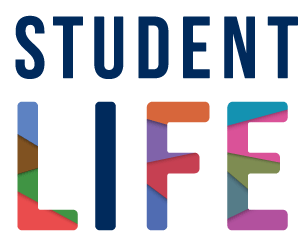Community-engaged learning (CEL) connects learning to real-world experiences. This means students get involved with local community organizations and contribute to their efforts. Typically there is also training and reflection so that students get the most out of the experience.
There are two basic types of community-engaged learning: academic and co-curricular.
Co-curricular community-engaged learning is an opportunity to get out of the traditional classroom and contribute to meaningful projects in your community where:
- You are an active participant in creating knowledge.
- You learn through reflection on experiences.
- You develop skills that traditional classroom settings don’t allow for.
- You gain deeper knowledge and insights on complex social issues.
How to take action
There are three ways to get involved, depending on how much time you have to commit:
- Join a one-day project through Community Day events.
- Contribute to a three-day project during Alternative Reading Week.
- Commit to a long-term engagement through Community Action Projects.
-

Associated Programs
Community Days
Get involved weekly in community organizations close to St. George Campus.
Learn more about Community DaysAlternative Reading Week
U of T students immerse themselves in four days of volunteering with local community organizations.
Learn more about Alternative Reading Week




